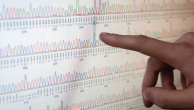
6 facts about America’s STEM workforce and those training for it
Black and Hispanic workers remain underrepresented in STEM jobs compared with their share of the U.S. workforce.
Black and Hispanic workers remain underrepresented in STEM jobs compared with their share of the U.S. workforce.
The higher education pipeline suggests a long path is ahead for increasing diversity, especially in fields like computing and engineering.
One year into the coronavirus pandemic, about a fifth of U.S. adults (21%) are experiencing high levels of psychological distress.
81% of Black Americans consider the outbreak a major threat to public health and about half see it as a major threat to their personal health.
77% think vaccinations will benefit the economy.
There are wide partisan gaps over most of the 19 items asked about – particularly addressing racial issues and dealing with global climate change.
Democrats are far more willing to say the U.S. can learn from other countries on major policy issues than Republicans are.
A third of U.S. adults say they changed their Thanksgiving plans “a great deal,” while roughly a quarter changed their plans “some.”
Majorities say scientific research on gene editing is a misuse – rather than an appropriate use – of technology. But public acceptance of gene editing for babies depends on how it will be used, and views often differ by age and religion.
In the nearly nine months since the coronavirus outbreak was declared a national emergency, almost every part of the country has been directly affected by the loss of life resulting from the virus.
Public views are tied to how these technologies would be used and what constraints would be in place.
Majorities across 20 publics say government investments in scientific research are worthwhile and express a lot or some confidence in scientists to do what is right for the public.
Majorities of Americans say the United States should prioritize the development of renewable energy sources and take steps toward the country becoming carbon neutral by the year 2050.
Majorities say scientific research on gene editing is a misuse of technology. But public acceptance of gene editing for babies depends on how it will be used, and views often differ by age and religion.












